For immediate release. Boston, MA (PRWEB) July 23, 2014
The Adult Stem Cell Technology Center, LLC Continues to Develop Technologies for Homologous Adult Stem Cell Therapies and Drug Development
Many current regenerative medicine trials are based on heterologous stem cell transplantation, in which stem cells multiplied from one type of organ or tissue are transferred to treat diseases, disorders, or injuries in a different type of organ or tissue. Boston’s Adult Stem Cell Technology Center, LLC (ASCTC) continues to develop technologies that could allow as well natural, homologous stem cell transplantation therapies for more human organs and tissues.
Adult stem cells that are required for regenerative medicine transplant therapies are biological, but not magical. However, many current regenerative medicine clinical trials may seem to treat them as if they were magical.
Many current clinical trials, as well as unsanctioned studies that constitute “stem cell tourism,” are evaluating heterologous tissue stem cell transplantation as an approach to developing new regenerative medicine therapies. In reality, these are not regenerative therapies, because in these clinical settings multiplication of the transferred cells is not desirable at all. They are expected to provide a therapeutic effect by way of other properties that do not require their multiplication, which is the basis for the moniker “regenerative.”
Paradoxically, some companies developing heterologous stem cell therapies state that the transplanted cells will eventually be cleared from the body (e.g., Athersys). A therapy with an expected endpoint of no stem cells remaining is not a “stem cell” therapy.
Instead of regenerating diseased and injured tissues by virtue of their specialized multiplication, the heterologous cells are being employed for envisioned general repair properties. Again, ironically, there is no good biological rationale to expect that functionally immature adult stem cells will have repair capabilities. However, they might produce progeny cells with such functions, but this would require their multiplication. These appear to be quite an inconsistent muddle of rationalizations.
The seemingly magical attitude taken by companies, investigators, and physicians pursuing these heterologous transplant therapies is really an illusion created by two limitations. First, the stem cells that are most readily obtained and multiplied are mesenchymal stem cells (MSCs), which are found in tissues like fat, bone marrow, skin, and joints, but are not the primary stem cells that form many of the organs and tissues in need of regenerative medicine treatments (e.g., pancreas, heart, nerves, liver). Second, although much research has been conducted with MSCs, what they might accomplish in human patients after heterologous transplantation can only be learned by conducting high-quality clinical trials.
Whether or not heterologous stem cell transplantation therapy, with all of its noted reservations, proves beneficial, extending homologous regenerative therapies – like bone marrow stem cell transplantation – to more organs and tissues is an important regenerative medicine goal. Contributing to achieving this goal is the core business of Boston’s ASCTC.
The ASCTC recently announced the approval of a new patent for producing induced pluripotent stem cells more efficiently. The new patent has a foundation in the ACSTC’s portfolio of patents for methods to multiply adult stem cells from diverse organs and tissues that are important targets for regenerative medicine therapies.
The lead adult stem cell expansion technology currently pursued by the company is for human liver adult stem cells. Produced in sufficient quantity, human liver stem cells could be used to produce functionally mature human liver cells called hepatocytes. Hepatocytes are essential for drug testing before advancing to clinical drug trials with patients. Current sources of these crucial drug testing cells are scarce, unreliable, and often of low quality. At manufacturing scale, the ASCTC’s adult stem cell multiplication technology could make such limitations a thing of the past.
In sufficient quantity, manufactured human hepatocytes could also supply companies (e.g., Vital Therapies) that are developing blood purification devices that support patients who are awaiting scarce liver transplants. In the case of acute liver failure in children, manufactured human liver stem cells might one day provide a curative homologous stem cell transplant therapy.
ASCTC’s Director James L. Sherley thinks that if the ASCTC can succeed with human liver stem cells, it will open the door to regenerative medicine treatments needed for diseases and injuries in many other organs and tissues. “I believe we have the capability to make trillions of therapeutic human tissue stem cells, pounds of them, every day.”
ASCTC is now seeking investors for its human liver stem cell manufacturing business. Sherley, who funded the initiating human liver stem cell production research with a prestigious Director’s Pioneer Award from the National Institutes of Health (NIH), is now awaiting the reviews for a collaborative NIH grant that would allow the initiation of studies to advance the laboratory scale multiplication technology to manufacturing scale.
The ASCTC’s adult stem cell multiplication technology works for adult stem cells from a variety of different types of organs and tissues. So far, in addition to human liver, the company’s intellectual property portfolio contains patents for rodent liver stem cells and hair follicle stem cells; and it has patents pending for human pancreatic stem cells, which have potential applications for cellular therapy for diabetes.


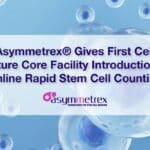
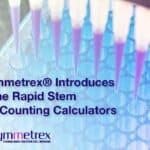
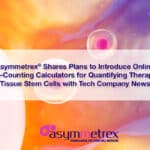
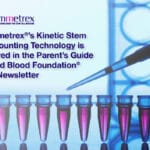
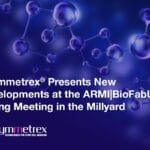
Leave a Reply